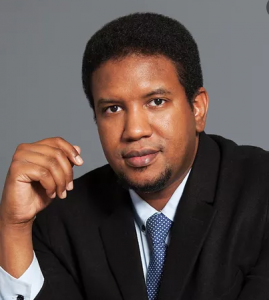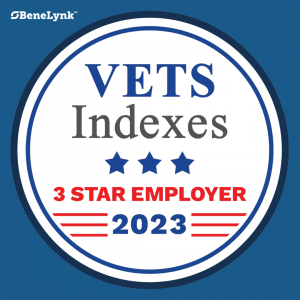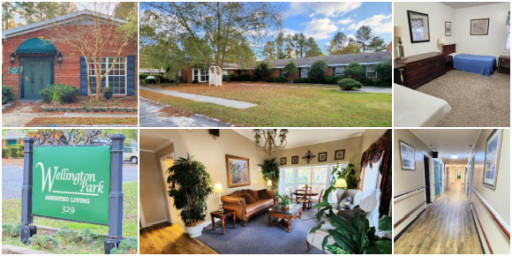Gary Porter, FMP, RS, CPA, RRC CEO of Facility Advisors International, LLC
Timeshare Home Owners Associations’ governing documents often emphasize the importance of property maintenance
”
— Gary Porter, FMP, RS, CPA, RRC CEO of Facility Advisors International, LLC
LAS VEGAS, NV, US, May 1, 2024 /EINPresswire.com/ — Timeshare Home Owners Associations’ governing documents often emphasize the importance of property maintenance
Timeshare Home Owners Associations’ governing documents often emphasize the importance of property maintenance. Industry experts recognize this cornerstone principle as the “Prime Directive.” The directive underscores associations’ fundamental obligation to ensure the upkeep and preservation of common areas and amenities — It serves as the guiding principle for effective property management, emphasizing the critical role maintenance plays in maintaining property value, resident satisfaction, and overall functionality.
However, despite the clarity of this directive, there is often a notable gap between the stated importance of maintenance and the actual focus and training provided in this area. Moreover, the complexity of managing maintenance tasks is compounded by the scarcity of highly trained maintenance experts with specialized credentials in facilities maintenance, particularly in the context of condominium associations and timeshare resorts.
The Necessity of a Comprehensive Maintenance Plan
The necessity of a well-crafted maintenance plan cannot be overstated. It serves as a roadmap for both preventive and corrective maintenance activities, providing a systematic approach to property upkeep. A comprehensive maintenance plan guides associations in prioritizing maintenance tasks, allocating resources effectively, and minimizing disruptions to owners and guests.
By delineating preventive measures and outlining protocols for addressing unforeseen incidents, such a plan empowers associations to safeguard their assets, maintain the aesthetic appeal of the property, and uphold its functional integrity over time. Furthermore, a meticulously crafted maintenance plan helps mitigate the risk of unexpected expenses, allowing associations to budget more accurately and avoid the financial strain associated with reactive maintenance practices.
A Proactive Approach
Experts illustrate the importance of preventive maintenance by drawing an analogy to regularly servicing a car to prevent breakdowns. Preventive maintenance entails the systematic inspection, servicing, and repair of building components to preemptively address potential issues before they escalate into costly problems.
By implementing a proactive approach to maintenance, associations can extend the lifespan of their assets, minimize the risk of major repairs or replacements, and optimize the overall operational efficiency of the property. For instance, conducting routine roof inspections and performing timely repairs can prevent leaks and structural damage, thereby averting the need for extensive and expensive remediation efforts in the future — Ultimately, preventive maintenance not only preserves the physical condition of the property but also enhances safety and its long-term value and attractiveness to residents or guests.
Key Aspects of Developing a Maintenance Plan
Several key considerations must be addressed in developing and implementing a maintenance plan:
1. Consulting Engineers: Engaging consulting engineers for major projects helps to ensure quality and adherence to specifications. These experts possess the technical knowledge and experience to assess the scope of work, recommend appropriate solutions, and oversee the execution of complex projects.
2. Documentation of Maintenance Activities: Tracking maintenance activities aids in accountability and record-keeping, ensuring compliance with contractual obligations. By documenting maintenance activities, associations can establish a comprehensive record of performed tasks, verify the fulfillment of contractual agreements with service providers, and demonstrate compliance with regulatory requirements. Date-stamped photos and detailed maintenance logs serve as valuable evidence of diligent property management practices, providing a basis for dispute resolution and liability protection in the event of legal disputes or insurance claims.
3. Roles Within Maintenance Management: Designated individuals oversee the upkeep of physical assets, playing a pivotal role in coordinating maintenance activities and managing vendor relationships. While the specific titles and responsibilities may vary depending on the organization’s size and complexity, the core objective remains consistent: to preserve the property’s value and functionality through proactive maintenance practices.
However, there is often an issue of individuals performing maintenance tasks who lack formal credentials or specialized training in facilities management. This underscores the importance of establishing stringent hiring criteria, providing ongoing training opportunities, and promoting professional development to cultivate a skilled and knowledgeable maintenance workforce.
4. Limited Availability of Specialized Maintenance Companies: Thorough research and due diligence are necessary when selecting maintenance service providers due to their rarity. Condominium Associations often face challenges in finding specialized maintenance companies dedicated solely to servicing this sector. While some companies demonstrate expertise and experience in servicing condominium associations, they remain exceptions rather than the norm.
As a result, associations must exercise caution and conduct comprehensive evaluations when selecting maintenance service providers, considering factors such as reputation, experience, licensing, insurance coverage, and adherence to industry best practices. Thorough due diligence ensures that associations partner with reputable and reliable vendors capable of delivering high-quality maintenance services that align with the property’s unique needs and requirements.
Differentiating a Maintenance Plan from a Reserve Study
It is essential to differentiate between a maintenance plan and a reserve study. Unlike a reserve study focused on financial projections, a maintenance plan details proactive measures for property preservation. While both documents contribute to effective property management, they serve distinct purposes and address different facets of maintenance planning. A maintenance plan outlines specific maintenance tasks, schedules, and protocols aimed at preserving the property’s physical condition and functionality over time.
Developed by experienced professionals, this plan serves as a comprehensive guide for property upkeep. It guides associations in prioritizing maintenance initiatives, allocating resources efficiently, and minimizing the risk of unexpected expenses or disruptions.
Understanding Common Areas
Clarifying maintenance responsibilities for common areas versus individual units is crucial for effective property management. Common areas encompass external components such as landscaping, parking lots, and building exteriors, collectively maintained by the association. Also included are areas such as unit balconies that are “exclusive use” common areas. Conversely, individual units entail internal fixtures and furnishings, requiring unit owners’ responsibility for upkeep. Vague governing documents often complicate maintenance responsibilities, leading to disputes over maintenance obligations.
By delineating clear guidelines and responsibilities for common area maintenance, associations can minimize conflicts, ensure equitable distribution of maintenance costs, and maintain harmonious relations among residents or homeowners.
Address Specific Needs
Tailoring maintenance plans to meet specific property needs involves a thorough needs analysis and consideration of historical data to anticipate future maintenance requirements. By assessing the property’s unique characteristics, usage patterns, and environmental factors, associations can tailor their maintenance plans to address specific challenges and optimize resource allocation.
Sustainability Practices and Technology
Integrating sustainability practices and technology in maintenance planning is essential to reducing environmental impact and improving operational efficiency. From energy-efficient upgrades to automated maintenance management systems, embracing sustainable practices and leveraging technological advancements can enhance the effectiveness and sustainability of maintenance initiatives.
Industry Challenges and Legislative Measures
Legislative intervention may be necessary to mandate the adoption of maintenance plans. A prevalent challenge within the industry lies in distinguishing between a maintenance program and a formal maintenance plan. Many associations erroneously believe their reserve study suffices as a comprehensive maintenance strategy, overlooking crucial preventive measures.
This misconception underscores the need for legislative intervention to mandate the adoption of maintenance plans. States like Oregon and California have implemented legislation requiring condominium associations to formulate formal maintenance plans, recognizing the imperative of proactive maintenance practices. By enacting such measures, lawmakers seek to enhance property resilience, promote sustainable maintenance practices, and protect the interests of homeowners and residents.
Planning Takeaways
Maintenance planning is crucial for ensuring the long-term viability and sustainability of timeshare resorts and condominium associations. By adhering to best practices outlined by industry experts, property owners, and managers can optimize maintenance operations and preserve property value for years to come. Through proactive preventive maintenance, meticulous planning, and strategic resource allocation, associations can effectively manage their properties, enhance resident satisfaction, and safeguard their investments against the challenges of time and wear.
About Facilities Advisors
Facilities Advisors has been providing reserve study services since 1982. All site technicians at Facilities Advisors either hold facilities management credentials or are enrolled in facilities management credential programs. The company has been preparing maintenance plans for decades. Facilities Advisors also developed the Facilities 7 software application with Percipient Software. This software system integrates the reserve study and facilities maintenance modules to provide the association with comprehensive information about its physical assets. Contact: Gary Porter, FMP, RS, CPA, RRC CEO of Facility Advisors International, LLC, 702-605-2394, [email protected], www.facilitiesadvisors.com
Gary Porter. CEO
Facilities Advisors
+1 702-605-2394
[email protected]
![]()
Article originally published on www.einpresswire.com as Facilities Advisors Announces Maintenance Planning for Timeshare Resorts












